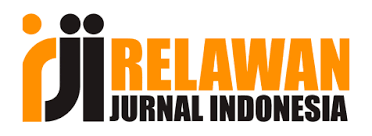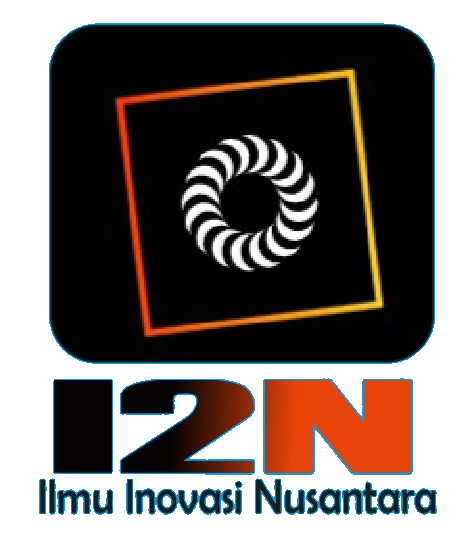Empowering Island Cultural Resource Education through Generative Artificial Intelligence: Value Logic, Challenges, and Implementation Strategies
DOI:
https://doi.org/10.58557/(ijeh).v5i3.335Kata Kunci:
Educational Practices, Generative Artificial Intelligence (GAI), Island Cultural Resources (ICR)Abstrak
The digital era has significantly transformed education and cultural dissemination through Generative Artificial Intelligence (GAI). This technology presents innovative opportunities to optimize Island Cultural Resources (ICR) for education by employing intelligent analysis and personalized recommendations to enrich learning experiences, enhance resource utilization efficiency, and support cultural heritage preservation and innovation. However, GAI also poses challenges alongside its potential, particularly concerning ethics, information security, and academic integrity. This study aims to identify the negative impacts of GAI in education, including the diminishing role and agency of teachers and students, the emergence of information cocoons that limit diverse perspectives, and the growing trend of knowledge homogenization. Additionally, it highlights the urgent need to restructure the educational ecosystem to remain relevant in the face of rapid technological advancements. The research employs a literature review and case study analysis to explore the application of GAI in education, particularly in island-based cultural learning. The findings indicate that GAI may reduce students' creativity and critical thinking without proper implementation while exacerbating digital inequalities. As a recommendation, this study proposes strategies based on human-centric technological ethics, enhanced media literacy, and the deep integration of technology and education to ensure that GAI enriches learning experiences, fosters cultural diversity, and upholds ethical academic values
Referensi
Ahuerma, F. M. (2024). UNESCO proposal for the use of generative AI in education: Eight challenges and seven actions. OSF. Retrieved from https://files.osf.io/v1/resources/78d3j/providers/osfstorage/6713ceac982cad03cb2ebefb?format=pdf.
Alamri, J. M. (2025). Antecedents of generative artificial intelligence technology adoption: Extended innovation of diffusion model with cultural dimensions and risks perceptions. Journal of Ecohumanism. https://doi.org/10.1108/JOEH-2025-0025.
Chen, C. (2024). Lanyu: Leveraging generative artificial intelligence in assisting foreign language learning. LUTPub. Retrieved from https://lutpub.lut.fi/handle/10024/167735.
Chiu, K. T. (2024). Erratum to “Future research recommendations for transforming higher education with generative AI” [Computers and Education: Artificial Intelligence 6 (June 2024) 100197]. Computers and Education: Artificial Intelligence, 6, 100239. https://doi.org/10.1016/j.caeai.2024.100239
Chu, C. (2024). Ideological risks and responses to AIGC false narratives. Journal of Kunming University of Science and Technology (Social Sciences Edition), 1(7). https://doi.org/10.16112/j.cnki.53-1160/c.2024.04.122
Deguara, D. (2024). Embracing the academic change caused by the proliferation of generative artificial intelligence chatbots in higher education. MCAST Journal of Applied Research & Practice. Retrieved from https://journal.mcast.edu.mt/seo/article/01.3001.0054.5100/en.
Derakhshan, A. (2025). EFL students' perceptions about the role of generative artificial intelligence (GAI)-mediated instruction in their emotional engagement and goal orientation. Learning and Motivation. https://doi.org/10.1016/j.lmot.2025.101954.
Fan, B. E., Chow, M., & Winkler, S. (2024). Artificial intelligence-generated facial images for medical education. Medical Science Educator, 34, 5–7. https://doi.org/10.1007/s40670-023-01942-5
Feng, Z. X. (2024). Ethical stances and governance of generative artificial intelligence applications: Taking ChatGPT as an example. Journal of East China University of Political Science and Law, 27(1), 61-71. https://doi.org/10.3969/j.issn.1008-4622.2024.01.006
Han, X. Z. (2023). The logical updates and path optimization for governing generative AI——A perspective on human-machine relationships. Journal of Administrative Law, (06), 30-42. https://doi.org/10.3785/j.issn.1008-942X.CN33-6000/C.2023.10.232
Hellman, D. (2024). Preservice music teachers’ knowledge and experience with generative artificial intelligence (GAI) in music education: Implications for music education policy. Commission on Policy: Culture, Media and Education. Retrieved from https://www.isme.org/sites/default/files/documents/proceedings/2024%20Policy%20Commission%20Proceedings%20Revised%20July%2026.pdf.
Institute of Party History and Literature of the CPC Central Committee. (2021). Selected excerpts from Xi Jinping's discourse on building a cyber power. Beijing: Central Literature Press.
Jin, S. H. (2022). How high-quality education can become good education? Educational Research, 43(04), 28-38. Retrieved from https://d.wanfangdata.com.cn/periodical/Ch9QZXJpb2RpY2FsQ0hJTmV3UzIwMjUwMTE2MTYzNjE0Eg1qeXlqMjAyMjA0MDAzGgg2Y3BmNHh2dw%3D%3D
Liu, M., Zhang, L. J., & Zhang, D. (2025). Enhancing student GAI literacy in digital multimodal composing through development and validation of a scale. Computers in Human Behavior. https://doi.org/10.1016/j.chb.2025.107234.
Meng, X., & Liu, J. (2025). Investigating information disclosure to AI chatbots in the context of privacy calculus. Online Information Review. https://doi.org/10.1108/OIR-06-2024-0375.
Mi, H. Q. (2021). The logical pathways and practical strategies of artificial intelligence in empowering party building in universities. Ideological and Theoretical Education, (09), 81-87. https://doi.org/10.16075/j.cnki.cn31-1220/g4.2021.09.013
Miao, F. C. (2023). Examination of the technique principle of generative AI and its educational applicability. Modern Educational Technology, 33(11), 5-18. Retrieved from https://old.cqvip.com/QK/82492X/202311/7110909714.html
Shen, F. J. (2024). The risks and governance of generative artificial intelligence: Addressing the “Collingridge Dilemma.” Journal of Zhejiang University (Humanities and Social Sciences), 54(06), 73-91. https://doi.org/10.3785/j.issn.1008-942X.CN33-6000/C.2023.10.232
Siddiqi, M. (2024). Enhancing international education with generative AI: From recruitment to academic and cultural support. American Journal of STEM Education. Retrieved from https://www.ojed.org/STEM/article/view/7030.
Tang, S. (2024). The transformation and development of specialized vocational education driven by artificial intelligence technology. Modern Vocational Education, (23), 129-132.
Tang, Z., Yuan, Y., & Wang, W. (2024). From information cocoon to multiple empowerment: Research on the generation mechanism of knowledge divide and its governance paths. Information Studies Theory & Practice, 47(06), 68-75+59. https://doi.org/10.16353/j.cnki.1000-7490.2024.06.008
Tsai, Y. C., & Chen, S. P. (2024). Bridging literature and code: Empowering students to explore digital humanities through generative AI. Innovative Technologies and Learning. https://doi.org/10.1007/978-3-031-65884-6_16.
Wang, J., & Wang, F. (2023). Opportunities, risks, and response mechanisms for the spread of red culture under the perspective of artificial intelligence. News Enthusiast, (12), 89-91. https://doi.org/10.16017/j.cnki.xwahz.2023.12.030
Winberg, C., & Engel-Hills, P. (2024). Am I in control of my own writing? Training postgraduate candidates in the responsible use of generative artificial intelligence in academic writing. African Journal of Interdisciplinary Studies. Retrieved from https://journals.dut.ac.za/index.php/ajims/article/download/1512/1012.
Wu, N. Z., Chen, X. Z., & Feng, Y. (2023). From “disordered” to “ordered”: The transformation and its generation mechanism of generative artificial intelligence education application. Journal of Distance Education, 41(06), 42-51. Retrieved from https://old.cqvip.com/QK/82504A/202306/7111129956.html
Xiao, T. (2024). New opportunities, new challenges: Reflections on higher education teaching models under generative artificial intelligence. Innovative Education Research, 12(05), 544-550. https://doi.org/10.12677/ces.2024.125323
Ye, Y., & Zhang, M. (2021). Research on the dilemmas and countermeasures of artificial intelligence in spreading the red culture around Lake Chaohu. News Research Guide, 12(24), 10-13. https://doi.org/10.3969/j.issn.1674-8883.2021.24.005
Zhang, H. B., & Xu, L. (2024). Ethical risks and governance approaches of generative artificial intelligence in education: Based on the practical investigation of the Russell University Group. Modern Educational Technology, 34(06), 25-34. Retrieved from https://old.cqvip.com/QK/82492X/202406/7112208908.html
Zhang, P., Wang, Y., & Shang, J. J. (2024). Generative artificial intelligence and educational transformation: Values, difficulties and strategies. Modern Educational Technology, 34(06), 14-24. Retrieved from https://old.cqvip.com/QK/82492X/202406/7112208907.html
Zhou, P. X. (2024). Research on the realistic value, practice, and application of generative artificial intelligence (AI) empowering party member education in universities. China-Arab States Science and Technology Forum, (05), 143-147. Retrieved from https://old.cqvip.com/QK/72564A/202405/7112086460.html
Unduhan
Diterbitkan
Cara Mengutip
Terbitan
Bagian
Lisensi
Hak Cipta (c) 2025 Qiantong Lin , MingLiang Xie, Huaxuan Ye, Hongying Wu, Xinyu Li, Dilin Ruan, Huiling Zhong

Artikel ini berlisensiCreative Commons Attribution-ShareAlike 4.0 International License.














